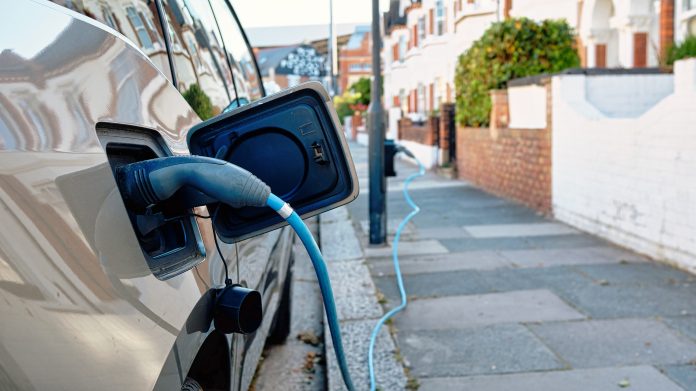The UK Government has announced a significant new investment to accelerate the country’s electric vehicle charging infrastructure
Britain is accelerating its transition to electric vehicles with a new £63 million investment from the UK Government. This funding aims to enhance the country’s electric vehicle charging infrastructure, supporting off-street home charge points, NHS fleet electrification, and expanded charging facilities for businesses. This strategic move not only reinforces the government’s commitment to building a cleaner, more sustainable transport network across the UK but also promises a future of lower emissions, reduced costs, and cleaner transport for all.
Improving the UK’s electric vehicle charging infrastructure
The investment package aims to drive down charging costs and improve electric vehicle charging infrastructure.
A £25m scheme will allow local authorities to expand access to cheaper at-home electric vehicle charging, providing households with lower rates, which could save up to £1,500 a year compared to running a petrol or diesel car. The cross pavement technology will allow cables to run safely beneath pavements, connecting homes directly to parked vehicles, enabling more families to tap into cheaper domestic electricity rates for as little as 2p per mile, offering significant cost savings and financial security, even if they don’t have a driveway.
The funding will extensively expand the UK’s electric vehicle charging network, which has currently reached 82,000 public charge points, with a further 100,000 expected to be installed as a result of the government’s local EV infrastructure fund and private investment.
Additionally, the UK Government is launching a significant new grant scheme to help businesses install charging points at depots nationwide, supporting the nation’s heavy goods vehicles, vans, and coach drivers in the transition to zero emissions.
Delvin Lane, CEO, InstaVolt, said: “We are pleased that the government has taken the crucial step of delivering official EV charging signage on the strategic road network – a move we believe will improve consumer confidence and bolster EV adoption. This marks a significant milestone for the EV industry and drivers across the UK.
At InstaVolt, we have been relentless in our campaigning and have built a strong, collaborative relationship with the government to push this initiative forward. Our opinion research suggests that the rollout of clear, official signage will make a significant difference, helping EV drivers easily locate public charging points while on the move, and reassuring those considering making the switch to electric vehicles.
For years, we have emphasised that the UK’s public EV infrastructure, so critical to mass adoption, is already primarily in place, and now this signage will finally showcase it to drivers in a visible, accessible way.
As the UK’s largest ultra-rapid public charging network with over 2,000 chargers nationwide, InstaVolt is proud to be at the forefront of this transformation and excited to see how these signs will accelerate the adoption of electric vehicles.”
Driving sustainability in the NHS
The NHS in England will also receive a major sustainability upgrade with an £8m fund for an electric fleet of ambulances and medical vehicles, which will be available across over 200 NHS sites. This significant investment, driven by the UK Government, is a testament to its commitment to public health and sustainability.
Health Minister Karin Smyth said: “This is a win-win: cheaper travel for the NHS and cleaner air for our communities.
As part of our Plan for Change, we’re investing in green energy to build an NHS fit for the future — cutting pollution and saving millions in fuel costs.”
NHS Chief Sustainability Officer Chris Gormley said: “The NHS has already implemented hundreds of projects that reduce emissions and drive significant cost savings, all while improving patient care.
This new £8 million investment, across 62 NHS Trusts and around 224 sites, supports the renewed commitment in the government’s 10 Year Health Plan to deliver a more sustainable NHS while also helping hospitals to save millions on fuel and maintenance costs and reducing air pollution. These savings can be reinvested directly into frontline care, ensuring the NHS continues to deliver for our patients and communities.”











